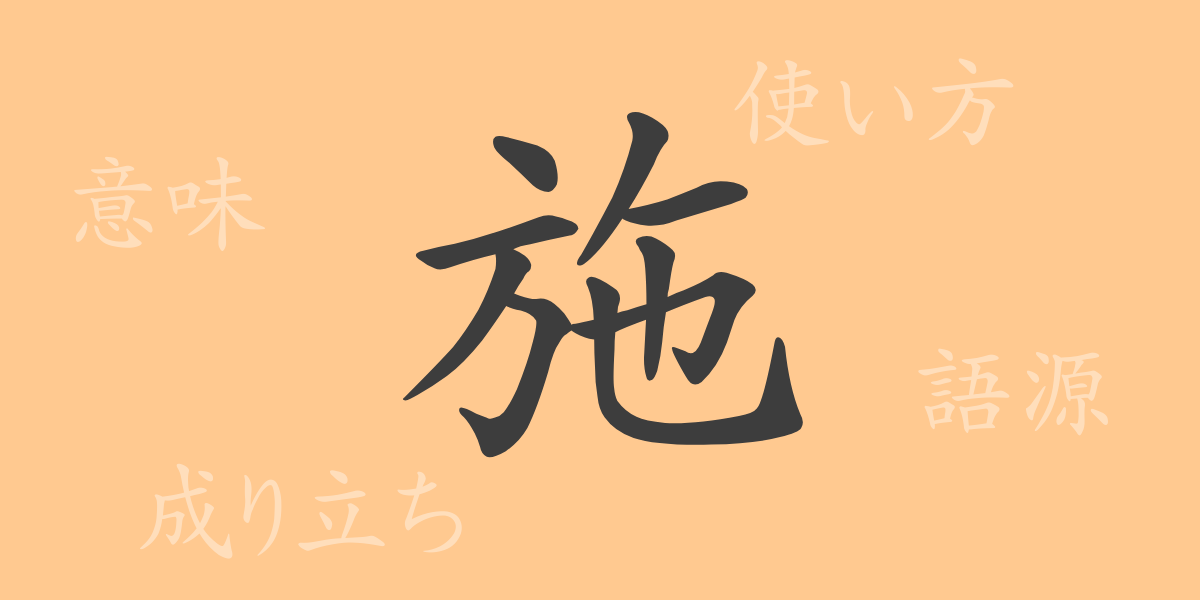The history and meaning embedded in a single kanji symbolize the depth of the Japanese language. “施(し)” is often used to describe actions rooted in our daily lives, and its usage can be seen in various contexts. This article delves into the charm of “施(し)”, exploring its origins, meanings, usages, and even idiomatic expressions and proverbs associated with this common kanji.
Origin of 施(し) (Etymology)
The kanji “施(し)” has evolved from ancient Chinese pictographs. Originally, it combined the shapes of “方(ほう)” and “也(や)”, depicting the act of leveling land. Over time, the meaning expanded to include tilling the land and providing it to people, solidifying its place as a kanji representing the act of giving and bestowing.
Meanings and Uses of 施(し)
“施(し)” encompasses meanings such as “to give”, “to implement”, and “to carry out”. It is used in a variety of contexts, from acts of charity where one gives to others, to indicating procedures or methods for carrying out tasks. This kanji frequently appears in legal and policy-related contexts as well.
Readings, Stroke Count, and Radical of 施(し)
The kanji “施(し)” demonstrates the diversity of Japanese through its readings and structure.
- Readings: The on’yomi (音読み) reading is “シ(し)”, and the kun’yomi (訓読み) reading is “ほどこ.す(hodokosu)”.
- Stroke count: “施(し)” consists of 12 strokes.
- Radical: The radical is 斉部(せいぶ), representing uniformity.
Idioms, Phrases, and Proverbs Using 施(し)
There is a rich variety of idioms, phrases, and proverbs in Japanese that incorporate “施(し)”. For example, “施設(しせつ)” refers to buildings or facilities established for specific purposes, and “慈善施設(じぜんしせつ)” means a place that provides aid to those in need. Another example is the idiom “無駄遣いを施す(むだづかいをほどこす)”, which means to waste money or time unnecessarily.
Conclusion on 施(し)
The kanji “施(し)” is intricately linked to various aspects of our lives, from the virtue of giving to the implementation of social systems. By tracing its evolution from ancient times to the present day, we can gain a deeper understanding of the power of words and their cultural backgrounds. The next time you encounter “施(し)”, remember the rich history and meanings behind it.

























